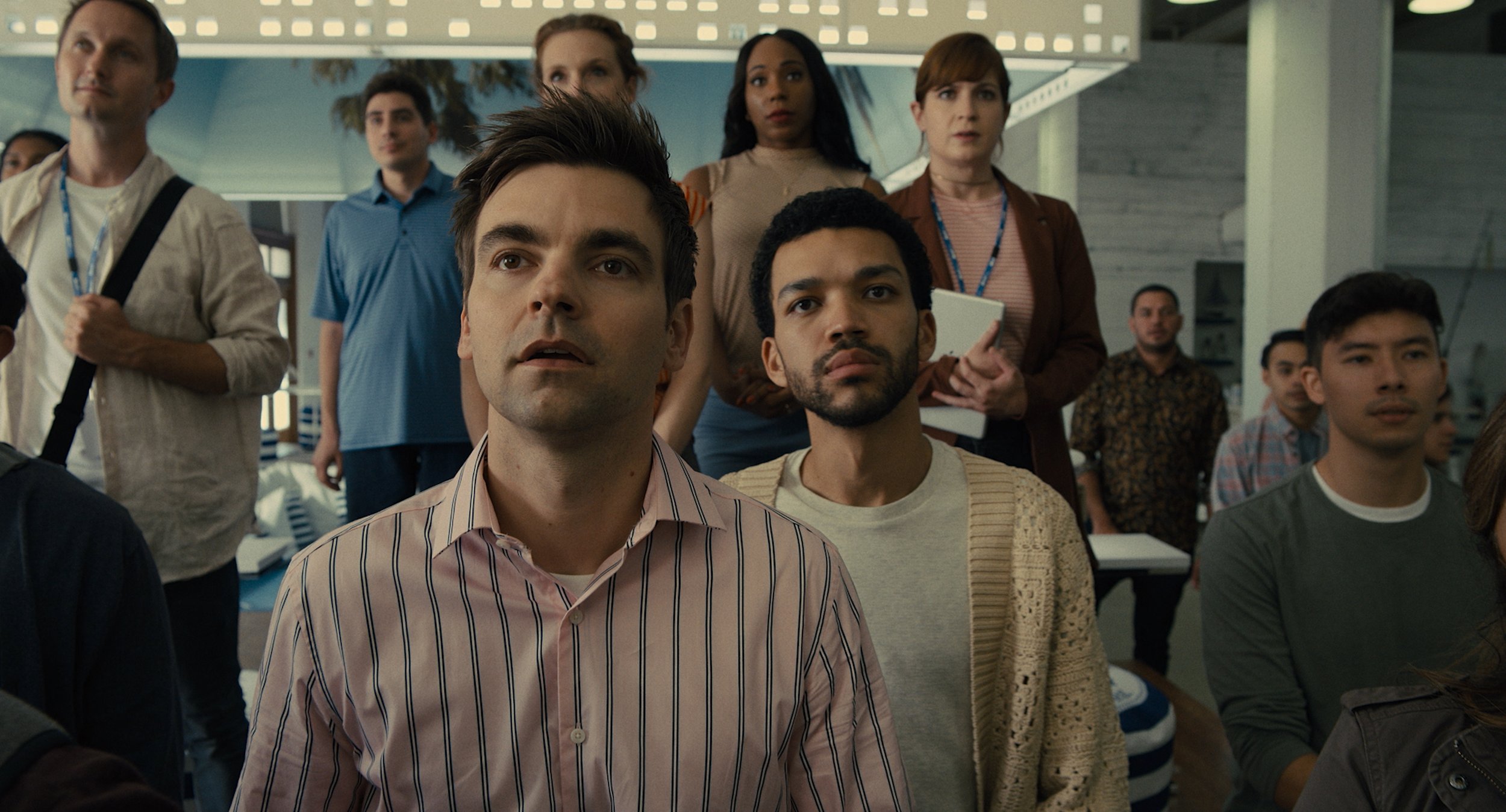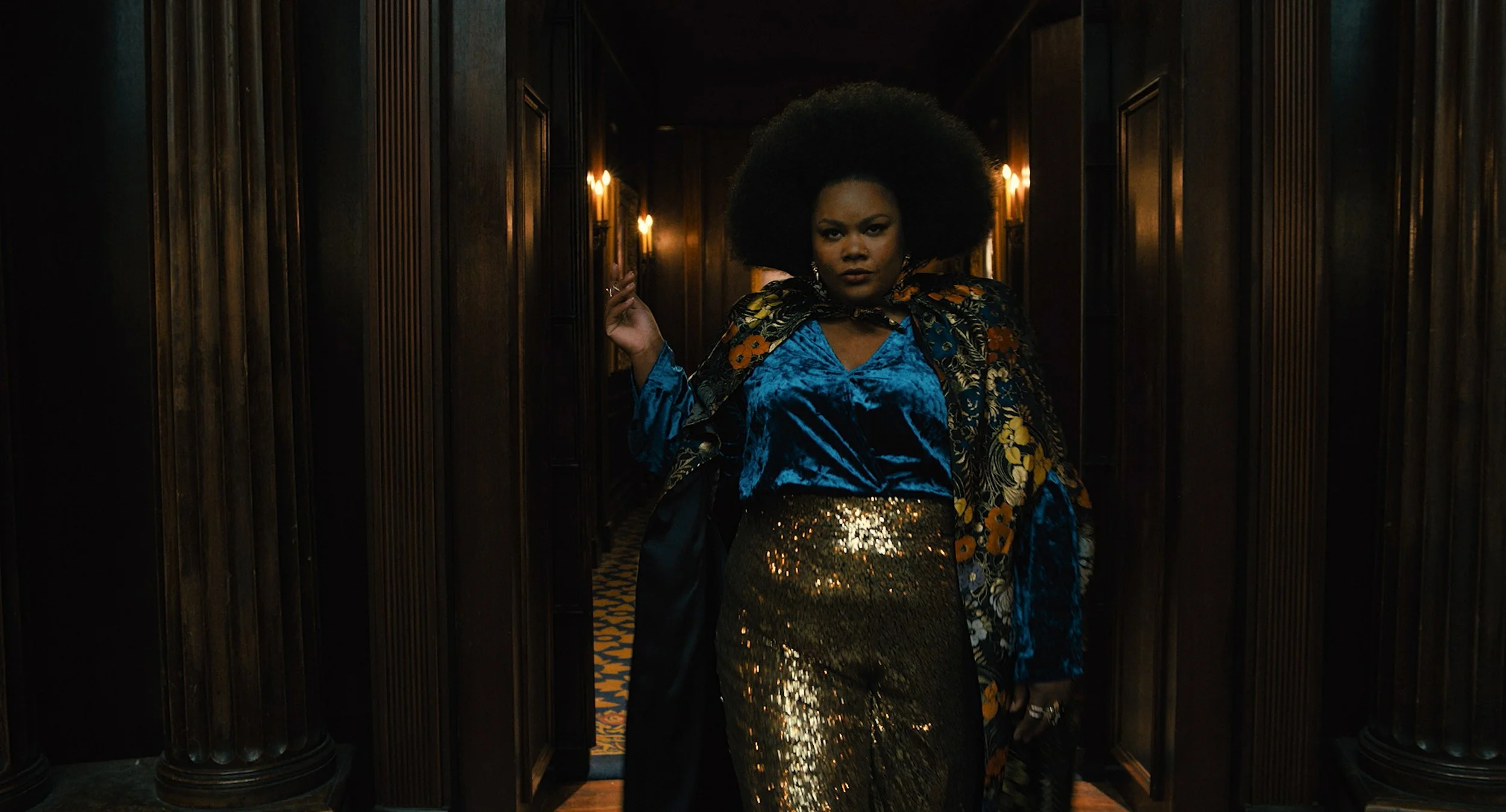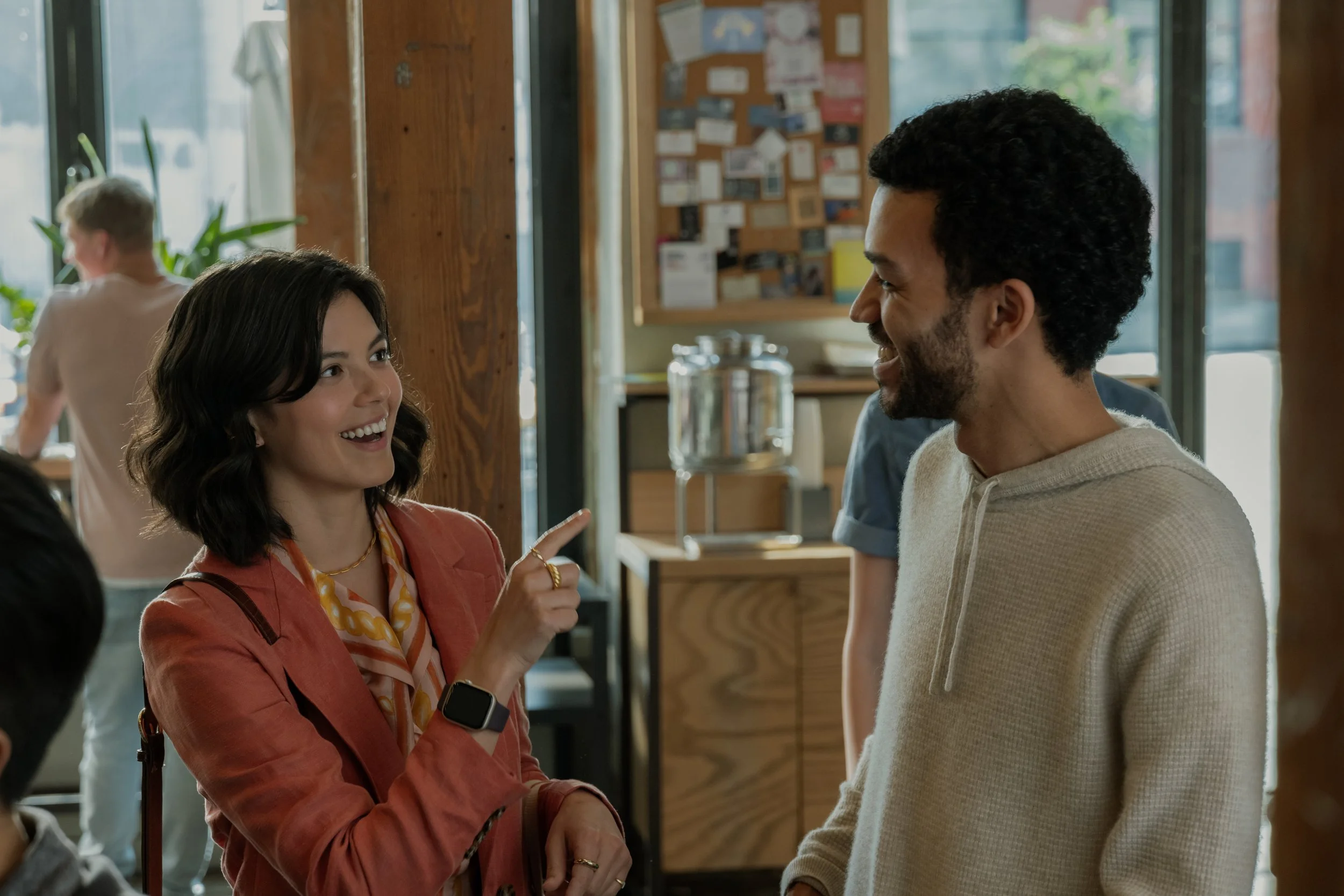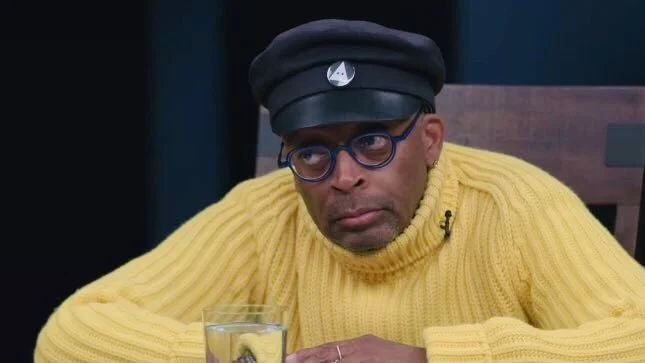'The American Society of Magical Negroes' Review: Spineless Black Satire Appeases White Viewers
In a post-Green Book world, the magical negro trope was ripe for a satirical takedown. The term, which describes selfless and one-dimensional Black characters helping white dudes succeed in their personal goals than their own – coined by Spike Lee in 2001 as a response to The Green Mile and The Legend of Bagger Vance – had an edge. And while there haven’t been any noteworthy magical negro characters in movies lately (because lord knows that in this post-George Floyd world, we’d be clowning whatever movie had the audacity), it’s evergreen to mock the trope. If only a filmmaker actively understood all the fundamentals about said trope, unlike Kobi Libii and his painfully frustrating and ultimately dull The American Society of Magical Negroes.
PG13: some strong language, suggestive material and thematic material.
Runtime: 1 Hr and 44 Minutes
Production Companies: Sight Unseen, Juba Lane
Distributor: Focus Features
Director: Kobi Libii
Writer: Kobi Libii
Cast: Justice Smith, David Alan Grier, An-Li Bogan, Drew Tarver, Michaela Watkins, Aisha Hinds, Tim Baltz, Rupert Friend, Nicole Byer
Release Date: March 15 2024
In Theaters Only
Aren (Justice Smith), a bumbling, spineless twenty-something in LA, doesn't stand up for himself in various situations, appeasing everyone despite his discomfort (mainly white people). He's seen and recruited by Roger (David Alan Grier) into a secret society of magical Black people who dedicate their lives to helping white people, making them challenge their discomfort. Aren is quickly assigned to work at a Facebook-esque company to assist his first client, Jason (Drew Tarver), succeed at his big presentation while setting him up with his co-worker Lizzie (An-Li Bogan). Aren's morals are tested as he and Lizzie stir a connection. Their bond then disrupts the sanctity of the organization as a whole.

Much like the trailer itself, The American Society of Magical Negroes sheds a coat of potential during its initial 20 minutes. The concept of society being a mix of a Black Hogwarts and a co-ed Greek life is genuinely intriguing. Libii dishes a few inventive ideas, mainly about how to get into the society’s secret passageway and teleportation powers, and he even refers to the famous benevolent Black people from history. Many club-set scenes occasionally made me chuckle.
Here is a mindless thing I jotted down and adored: Aren wears a Rhode Island School of Design t-shirt. It’s not like I ever attended RISD, but I know some great people who did, so it’s nice to see it represented in film. I’m just sorry that it was this film.

Spinelessness is the definitive trait plaguing The American Society of Magical Negroes. From Aren's character to the safeguarded humor and the quote-unquote satire, Libii's feature fails to install a backbone to make any clever or intelligent commentary with the titular concept. If you have the gall to use the term Spike Lee invented as the basis of your movie, you better step up to the same disruptive energy. But alas, the titular location is only used as a plot device to encourage a middling, interracial romance. From the jump, Libii's script is uninteresting and lackadaisical in selling the audience on the magical club and its representation. Let alone the reason why any sane Black person would want to pursue a job there in a post-George Floyd world.
Early into the story, Roger saves Aren from getting beat by a bulky white man who thought Aren stole his drunk lady friend's bag while he was helping her with the ATM. However, because Aren goes from Justice to Jerry Smith on a dime, he has no confrontational skills to stand up for himself, thus making Roger assume that Aren is perfect for the position. His opening monologue while recruiting Aren takes an ill-conceived stance on why the magical negro trope needs to persist. "Don't blame white people. Blame their discomfort," Roger says to Aren. Yet, white people's discomfort is within the white people themselves. When any viewer questions its flimsy reasoning, the script zooms past to wrap itself in its fantastical world. Character depth is sacrificed for awkward gags that limit the potential of penning anything meaningful about the current landscape of Black treatment in America, having the nerve to call itself a satire but not doing a damn thing to satirize anything.
Libii is disinterested in elaborating on the American sectors of the club, for the film centers on an LA section and leaves it there. Meanwhile, the anti-Blackness comes in various shapes and forms across the nation. That disinterest also shows in the thin laws within the club, such as all the members having to share a collective power, so if one fails at their job, everyone's magic abruptly stops. That is the most pathetic magic rule I’ve ever heard.
The lead, Aren, is a thankless, spineless person whose mixed identity conflates the meaning of the titular setting. Never for a moment does the film delve into Aren's inner life, showing off his relationship with his family or Black people outside of the club. The only background information you get from him is the fact that he has a white mom and a Black dad. Now, I'm not reducing the character's Blackness, considering that he, too, is a product of interracial love. But when a movie is about magical negroes and references examples throughout history, most are dark-skinned Black characters. Casting Justice Smith as Aren is a detriment to the message, for his light-skinned complexion amongst dark-skinned people (often seen in the background) is enough to make him pass like Ruth Negga in Passing. The film promotes a mixed lead because it's more accessible for white folks than anything else, and that notion becomes ever so transparent once he mentions his white mom. Aren’s fear of being Black in America never necessarily involves his Blackness but coincides more with his timid, pathetic personality. The most significant way it falls flat is its big-swing finale, where Aren speaks about his Blackness, which would've landed if it came from a dark-skinned, non-mixed Black person. Even the lighting in that scene makes Smith look lighter than his white counterparts.
All goodwill is lost when the film reveals its true intentions by throwing Aren in a thankless, bare-bones romance with his white/Asian co-worker, Lizzie. Now, Justice Smith and An-Li Bogan have palatable chemistry. They have the potential to be good romantic leads. Smith has that deadpan charm, and Bogan is thoroughly charismatic. But given the context of this premise, it's infuriating, if not slightly offensive, that the magical negro concept becomes a device for an interracial romance. I was at a loss for words at how comfortable the film was to drop itself on its head to be like, "What if a Black man got with a white woman in this society?" Have you ever gone to Williamsburg?! It's not a new fucking concept.
This movie's failure and disinterest in making a statement on contemporary Black issues in America is why I'm proud that American Fiction won Best Adapted Screenplay. I've seen many colleagues – mainly white people – say they didn't get how that film won over Barbie and Poor Things, but I do. Say what you will about American Fiction's satire being on the nose. Still, the genius lay in balancing the intimate lives a Black family led while mocking the industry’s landscape that Black creatives try to navigate, giving it a dimensional and super character-driven perspective. Part of what made American Fiction's satire feel fresh was how it acknowledged the mindsets of white people within a post-George Floyd protests world where faux activism and allyship have run wildly throughout the country, and that's where their "discomfort" lay.
The American Society, however, acts as if we're okay with being regarded as such, arriving outdated and hollow, walking on eggshells so that it can not offend white people. You had the gall and opportunity to deconstruct and satirize one of the biggest Hollywood sins in history. You became what you made your movie about. And who were you trying to appeal to? It wasn't our Black brothers and sisters.

Rating: 1/5 | 23%





